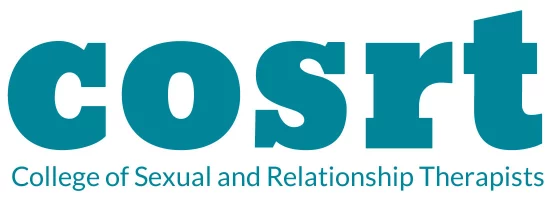A confidential space to explore the thoughts, feelings and challenges in your life
Hi, my name is Imelda
Finding a therapist that is right for you is important. I bring over 30 years’ experience working in mental health. I bring to my practice experience I have gained through my training, working for the NHS, education and voluntary organisations, incorporating different levels of communication and management skills. I have worked with people who have experienced a range of psychological and mental health difficulties. Being able to work alongside people providing a safe space to explore, process and heal these difficulties has been central to my approach. My philosophy is that by providing a meaningful and non-judgmental space for exploration we all have the capacity to learn and grow in our understanding of ourselves as well as in relationships.
My style of therapy is integrative as I draw on a range of training and approaches to adapt to clients needs. I work in trauma informed and neuro affirming approach and have experience of working with clients exploring ADHD and Autism.
I am qualified as a specialist psychosexual and relationship psychotherapist, art psychotherapist and EMDR practitioner. I have worked in higher education for over 11 years as a senior lecturer, teaching and delivering professional counselling and mental health nursing programmes.
I am able to provide training in mental health and bespoke CPD training to organisations and groups in a variety of areas of counselling and psychotherapy, including incorporating creative and expressive approaches into practice, relationship and couples counselling and sex and relationships.
Please contact me if you would like more information
How can counselling help?
As a therapist my role is to provide space for you to explore and enable you to make new meanings and work towards meeting your goals and aspirations. I work in a relational way, with a non-judgmental approach. I offer a chance to reflect on the difficulties or problems you are experiencing in a safe and confidential environment.

Supervision
Supervision is a core element for those working within health and social care sectors, and valuable in meeting professional ethical requirements. It is a place that provides opportunity to explore practice safely and enhances practitioners’ skills and self-care.

Art Therapy
As an Art therapist I aim to provide a creative and expressive opportunity to explore psychological and emotional difficulties. Art therapy uses art as the primary mode of expression, alongside talking with an art therapist.
Get in touch
Feel free to contact me if you have any questions, or if you would like to arrange an appointment. You can also call me on 07966651258 if you would prefer to leave a message or speak to me first.
All enquires are usually answered within 24 hours, and all contact is strictly confidential.
Frequently asked questions
Counselling is typically a good way to address a current problem—something that can be discussed and, hopefully, resolved within a limited number of sessions. Over several weeks, understanding of the issue improves, and a way forward becomes clear. Therapy, on the other hand, often delves deeper into more substantial life issues that have a greater impact on the client’s life. Therapy usually requires a longer-term approach, with the number of sessions often being open-ended.
The most suitable option depends on the client and the difficulties they are facing. In some cases, counselling works well as an ongoing, longer-term option, while therapy may resolve an issue in just a few sessions.
The length of counselling varies from person to person and depends on the depth of the issues they are facing. For some, just a couple of sessions can help bring their problems into focus, allowing them to feel ready to move forward; other issues may require a more open-ended approach.
Before we begin, we will agree on the number of sessions to undertake and review our progress at the end of that period. If we both agree that further therapy would be beneficial, the sessions can continue.
My aim is to offer a first appointment - known as an initial assessment - within 1-2 weeks. Then we would arrange a set number of counselling sessions to take place at the same time every week, that is convenient for you and where I have availabity. How quickly these sessions can begin will depend on the availabity of that free ‘slot’.
Everything that is said within the counselling room is private - this is one of the main ways counselling and therapy differ from talking to a friend or relative. Once you are comfortable with the format of weekly sessions and the safe space they provide, you will find the freedom to speak in confidence is of great value.
Note that there are some situations where you may be a risk to yourself or others, and there the law requires that I notify an authority; in these cases I may not be able to keep total confidentiality. Breaking confidentiality is very rare though, and only happens after the person concerned has been informed.
Usually I am asked this question by people who are nervous about entering into counselling, or when they are looking for support in coming to see a therapist. This anxiety is understandable, but a key aspect of therapy is that you should feel free to talk about any issues you feel are important to you. Having someone else with you who can be connected those issues makes this opening-up more difficult, so for this reason I do not see clients accompanied by friends or family.
My location
I am based in Morecambe, Lancaster, and South Lakes, and see clients from these areas as well as the surrounding regions. I will provide specific location details when we arrange our counselling sessions.
In addition to offering face-to-face therapy, I also provide telephone counselling and online sessions via Zoom. I work with young people (13-17), young adults (18-24), adults (25-64), older adults (65+), couples, families, and organisations. Contact me to find out more about how online therapy works.
Fees & availability
Therapy sessions last 60 mins and regularity can vary depending on individual needs, from weekly through to monthly.
- Therapy sessions cost £70
- I offer clinical supervision for qualified therapists
- I offer supervision for trainees at a reduced cost, contact me to discuss
- Supervision costs £70 per hour, £120 for 90 minutes
- Fees are paid after sessions
You may not know it, but you’ve already taken the first step...
It can be scary and confusing making the decision to contact a counsellor or therapist, but in my experience people will struggle with a mental health issue, a personal crisis or problems with a relationship for much longer than is healthy. Sometimes a friend has proved a source of comfort, but this help can only go so far. Realising that resolving a problem requires something more means you have actually already taken the first step towards improving your life.
© Imelda Hatton
Powered by WebHealer


